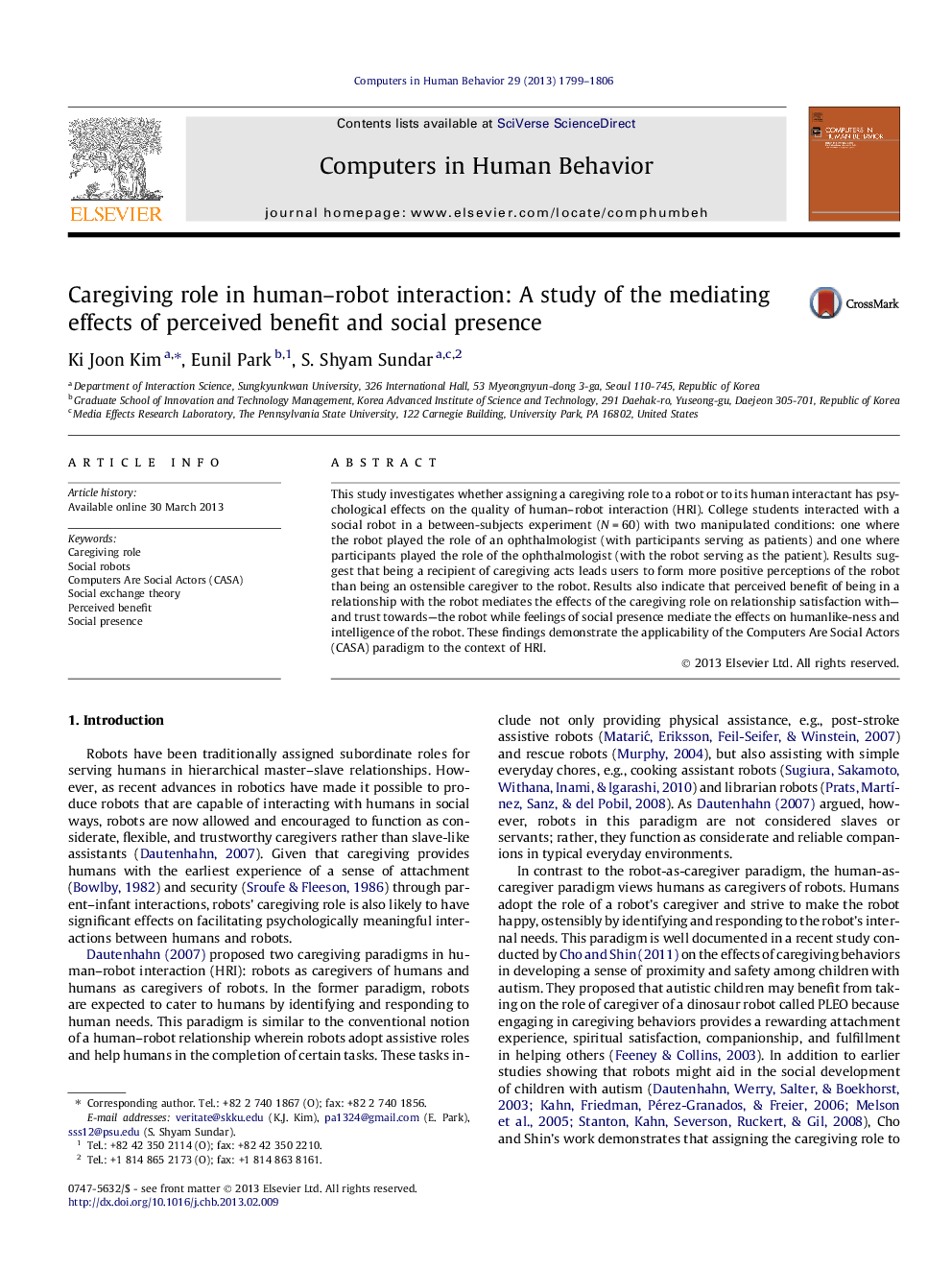| Article ID | Journal | Published Year | Pages | File Type |
|---|---|---|---|---|
| 351084 | Computers in Human Behavior | 2013 | 8 Pages |
•We examine the effects of caregiving role (robot vs. human caregiver) in HRI.•Being a recipient of caregiving acts leads users to form more positive perceptions.•Perceived benefit and social presence mediate the effects of the caregiving role.•Immersive tendency is a significant predictor of user perceptions of the robot.•Need to belong is a significant predictor of user perceptions of the robot.
This study investigates whether assigning a caregiving role to a robot or to its human interactant has psychological effects on the quality of human–robot interaction (HRI). College students interacted with a social robot in a between-subjects experiment (N = 60) with two manipulated conditions: one where the robot played the role of an ophthalmologist (with participants serving as patients) and one where participants played the role of the ophthalmologist (with the robot serving as the patient). Results suggest that being a recipient of caregiving acts leads users to form more positive perceptions of the robot than being an ostensible caregiver to the robot. Results also indicate that perceived benefit of being in a relationship with the robot mediates the effects of the caregiving role on relationship satisfaction with—and trust towards—the robot while feelings of social presence mediate the effects on humanlike-ness and intelligence of the robot. These findings demonstrate the applicability of the Computers Are Social Actors (CASA) paradigm to the context of HRI.
